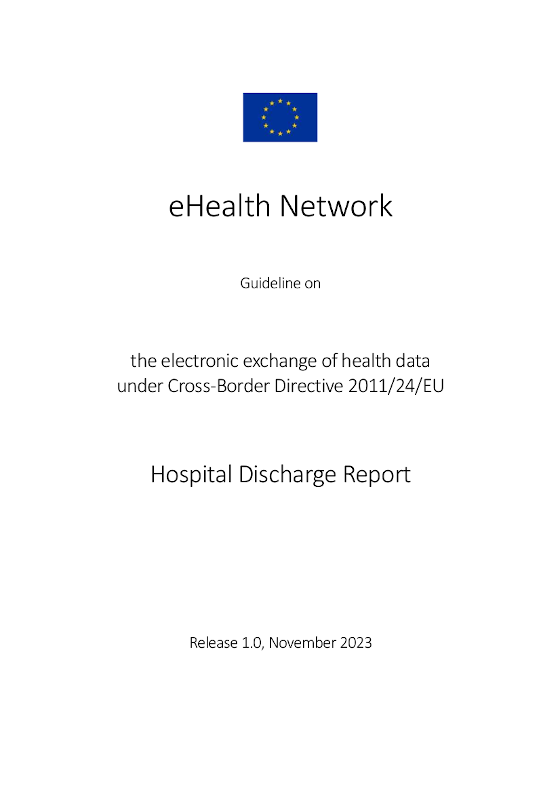 The Member States in the eHealth Network have adopted these supplementary clauses to the general guidelines for the electronic exchange of health data under Cross-Border Directive 2011/24/EU to support the exchange of Hospital Discharge Report for continuity of care in a cross-border setting. The Hospital Discharge Guideline builds on the foundations laid out by the Patient Summary and the ePrescription Guidelines (including datasets and code systems). The eHealth Network guidelines build a set of guidelines that should be seen as complementing each other in different use cases and are operating under the umbrella of the General Guidelines.
The Member States in the eHealth Network have adopted these supplementary clauses to the general guidelines for the electronic exchange of health data under Cross-Border Directive 2011/24/EU to support the exchange of Hospital Discharge Report for continuity of care in a cross-border setting. The Hospital Discharge Guideline builds on the foundations laid out by the Patient Summary and the ePrescription Guidelines (including datasets and code systems). The eHealth Network guidelines build a set of guidelines that should be seen as complementing each other in different use cases and are operating under the umbrella of the General Guidelines.
Download: eHN Guideline on the Electronic Exchange of Health Data Under Cross-Border Directive 2011/24/EU: Hospital Discharge Report (1.916 KB).
Download from DIGITAL HEALTH NEWS: eHN Guideline on the Electronic Exchange of Health Data Under Cross-Border Directive 2011/24/EU: Hospital Discharge Report (1.916 KB).